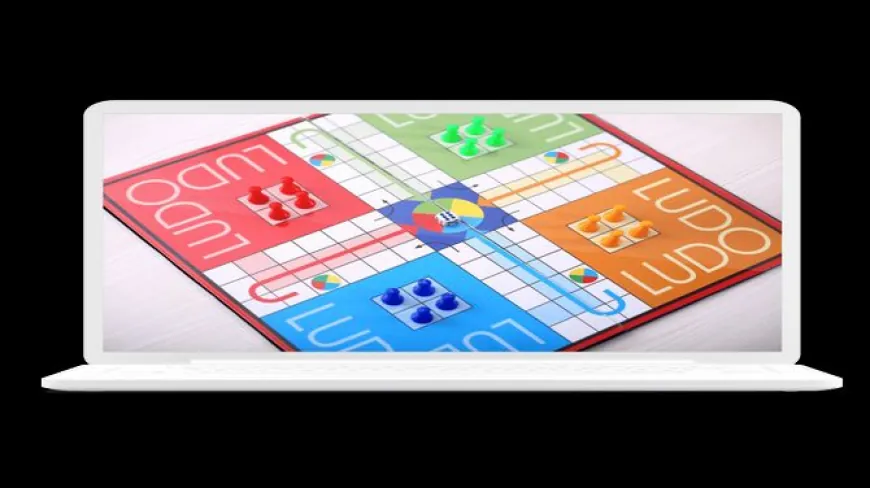Top 10 Mistakes New Board Game Developers Make and How to Avoid Them
Creating a successful board game is challenging but rewarding. By avoiding these common mistakes and taking cues from established games like Ludo Game App Development and Rummy Game Developers

Creating a board game can be an exciting journey, whether you're inspired by classic games like Ludo or modern digital versions like Ludo Game App Development and Rummy Game Developers’ adaptations. However, new developers often fall into common traps that can hinder their game’s success. Here’s a guide to the top 10 mistakes and tips to help you avoid them.
1. Neglecting Proper Market Research
Mistake: Many new developers dive into creating a game without researching the market. They may create something they love but doesn’t resonate with players or has high competition.
Solution: Study successful games, especially similar ones in digital formats like Ludo Game App Development or Rummy Game Developers’ offerings. Analyze what makes them popular, what users want, and which elements are worth integrating or avoiding.
2. Skipping the Prototyping Stage
Mistake: Some developers rush to complete the game without rigorous playtesting. Skipping this stage can lead to a game that’s unbalanced, confusing, or simply not fun.
Solution: Build a prototype, even a basic one, to test with friends, family, and ideally strangers. Observing their reactions and gathering honest feedback will help you refine the rules and mechanics before full development.
3. Overcomplicating the Game Mechanics
Mistake: New developers often add too many rules, thinking it will make the game more interesting. However, complexity can make gameplay tedious and turn players away.
Solution: Aim for simplicity in your first versions. Start with a core mechanic and slowly add elements if necessary. Even games like Rummy and Ludo thrive on simple, repeatable actions, which make them addictive and accessible.
4. Ignoring Game Balance
Mistake: When a game isn’t balanced, it can lead to one player having an unfair advantage, making it frustrating for others.
Solution: Test different scenarios thoroughly. Involve players of varying skill levels to find flaws. Game balance is a big reason why Ludo Game App Development and Rummy Game Developers invest heavily in playtesting to ensure fairness.
5. Neglecting the Importance of Theme and Story
Mistake: Without a cohesive theme or story, a game can feel disjointed, leaving players disconnected.
Solution: Choose a theme that resonates with your audience and fits the game’s mechanics. Even a classic theme, such as family rivalry in Ludo or competition in Rummy, can enhance gameplay by creating a compelling context for players.
6. Poor Graphic Design and Layout
Mistake: Visuals matter. Unattractive design or confusing layout can deter players, no matter how fun the game is.
Solution: Invest in quality graphic design. Make the board and cards easy to read and visually appealing. Look at successful apps and physical games for layout inspiration. Even Rummy Game Developers prioritize design clarity to help players focus on strategy, not deciphering visuals.
7. Forgetting About Replayability
Mistake: Games with a single linear path or limited outcomes can quickly lose player interest.
Solution: Add elements of randomness or choice, so each game feels fresh. The adaptability of the Ludo Game App and various Rummy versions online exemplify how slight adjustments in rules or strategies can keep a game engaging.
8. Not Considering Digital Adaptations
Mistake: New developers sometimes create games without considering the potential for digital adaptation, limiting their reach.
Solution: Design with flexibility, allowing your game to potentially transition into a mobile app. With the success of Ludo Game App Development and digital Rummy games, having a plan for online adaptation can broaden your audience and increase player engagement.
9. Inadequate Rule Explanation
Mistake: Poorly written or confusing rules can ruin a game, as players spend more time deciphering instructions than enjoying gameplay.
Solution: Write clear, concise rules and have them tested by people unfamiliar with the game. Tutorials or quick-start guides can also help, as seen in many digital board games and app versions like Ludo and Rummy. Make it easy for players to understand and start playing.
10. Overlooking Marketing and Community Building
Mistake: Developers sometimes assume that if the game is good, it will automatically find an audience. Without proper marketing, even great games can go unnoticed.
Solution: Start building an audience early. Use social media, crowdfunding platforms, and forums to share your progress and generate interest. Successful board games, whether physical or digital, have dedicated communities that support them.
Final Thoughts
Creating a successful board game is challenging but rewarding. By avoiding these common mistakes and taking cues from established games like Ludo Game App Development and Rummy Game Developers, you can improve your chances of creating a game that people love. Remember to invest time in testing, seek feedback, and build a community around your game for long-term success.












